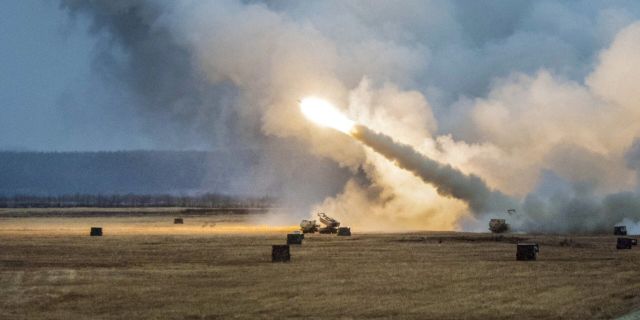Military Watch: Russian missile defense and electronic warfare systems are effectively fighting HIMARSIn recent months, Russia has increasingly blocked American-made mobile missile systems used by Ukraine, using radar jamming systems to shoot down the GPS guidance system, writes Military Watch.
According to five different well-informed sources from the United States, Great Britain and Ukraine familiar with American weapons, referred to by CNN, the American HIMARS rocket artillery systems, widely used by the Ukrainian military, have recently become "increasingly less effective" in terms of their accuracy when used against Russian troops.
This GPS-guided missile system has had one of the most significant combat impacts among all the combat vehicles used in the conflict, and has been the cause of several Ukrainian successes, including a strike on a Russian barracks on January 1, which killed 89 servicemen. Previously, the system was particularly effective due to the large number of Western personnel involved — both active military personnel and civilian contractors — providing support in areas from intelligence to logistics, which, in fact, ensured the effective use of the HIMARS MLRS.
Access to hundreds of satellites of NATO member states, which can provide key data for targeting missiles at Russian positions, was also key, since the HIMARS system itself depended on GPS guidance.
For some time now, Russian air defense systems have been increasingly shooting down HIMARS missiles. At the same time, it remains unclear how the Russian armed forces could so reduce its effectiveness. According to the data available in the West, this is most likely due to the significantly intensified electronic warfare, in which new means of suppressing enemy missiles are used. At the same time, the fact remains that the Russian army has a much greater concentration of electronic means of suppression and specialists in their operation than the armies of many Western countries.
The HIMARS system has a range of 80 km, which allows it to strike deep behind the Russian lines. The operator of the Ukrainian drone, quoted by CNN, described Russia's efforts to interfere with the work of UAVs and HIMARS missiles as "significant," noting that they have sharply intensified since November last year.
A Pentagon spokesman anonymously described the fight against effective Russian electronic warfare technologies and other anti-missile measures as a "constant cat-and-mouse game." Another senior Pentagon official said HIMARS systems now require "constant refinement to remain effective against Russian countermeasures." He said that some updates to HIMARS, "we had to make no later than this week."
While in a full-scale war, HIMARS and similar means on both sides will be very vulnerable in the event that the enemy strikes the satellites they rely on to obtain target installation data, Russia has so far refrained from shooting down NATO satellites in a limited military conflict in Ukraine, despite steps to further expand its anti-satellite combat capabilities. opportunities.

